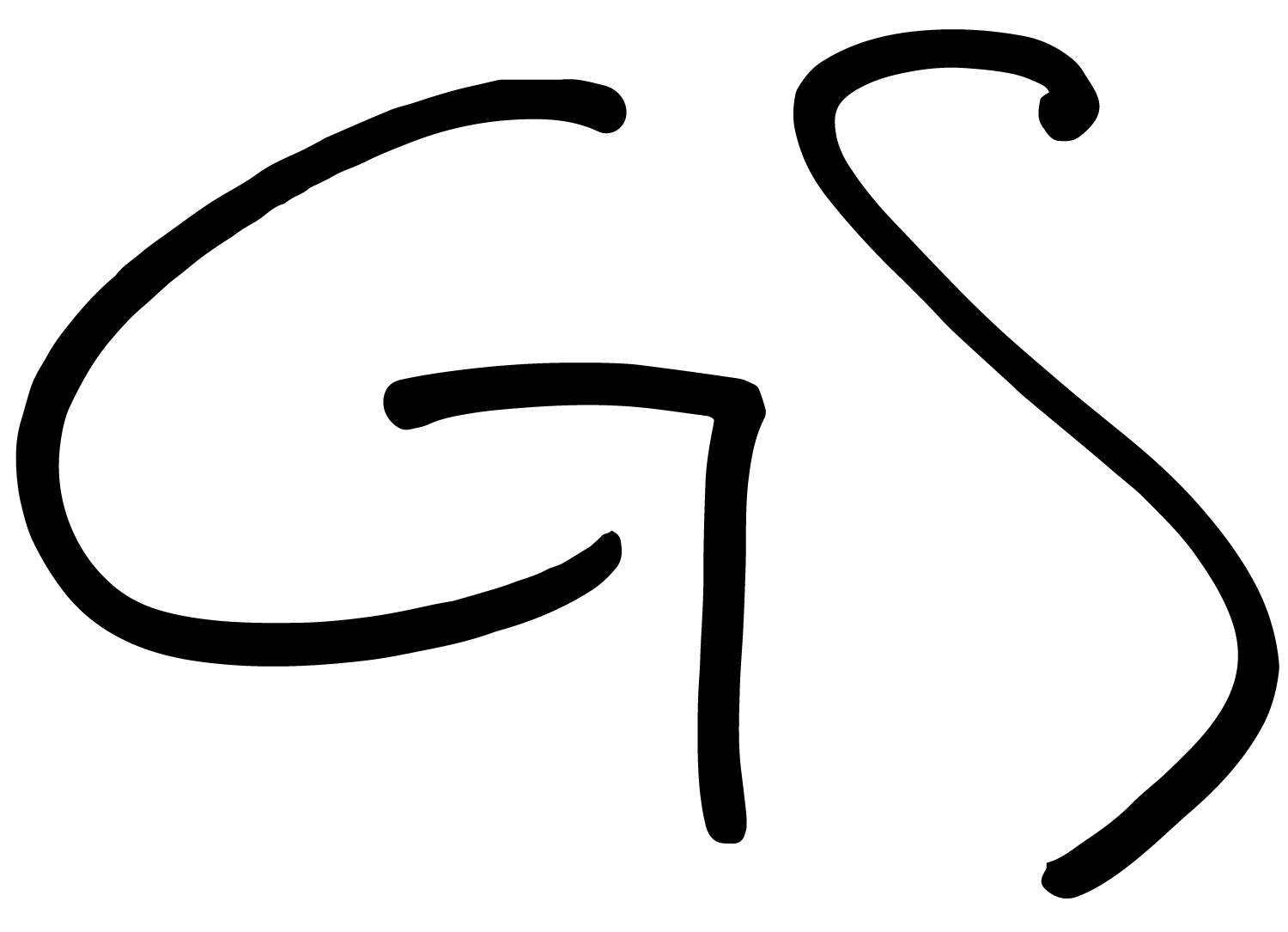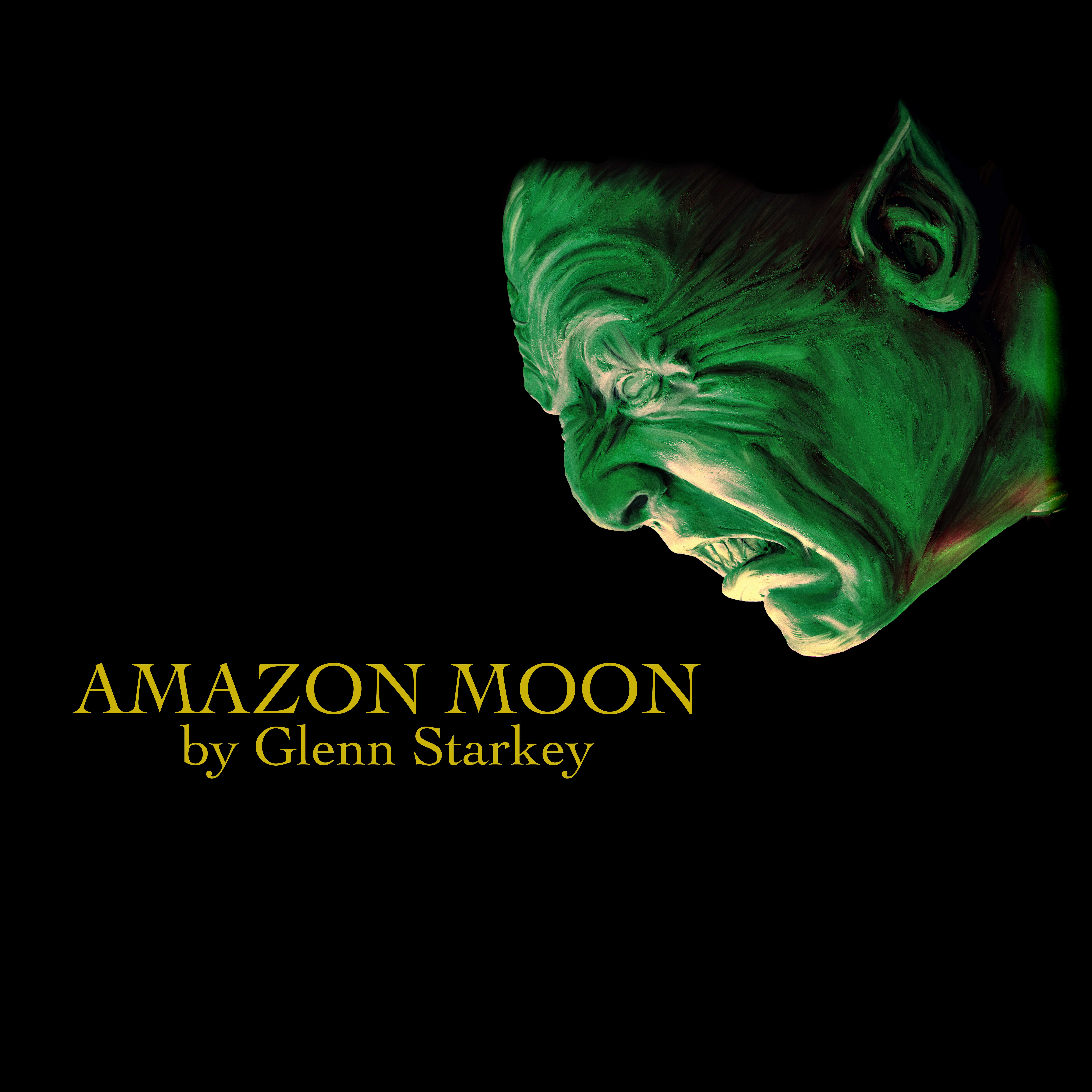by Glenn | Jun 23, 2013 | interview, Writing
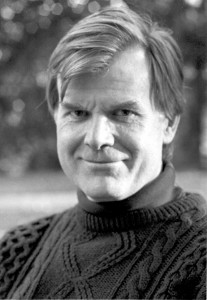
Author: Nicholas Guild
Years ago, as an aspiring writer, I read “The Assyrian” by Nicholas Guild. Since that day I have considered him one of the finest authors in the literary world—and my silent mentor of the craft. There are others who speak highly of Nicholas Guild as well…Publishers Weekly, the Associated Press, The New York Times Book Review, Book of the Month Club, The Library Journal and more, plus a long list of prominent newspapers. The list goes on, especially in international markets from Europe to Japan and Russia, but I’ll stop for now. Fast forward ahead though and today I’m honored to interview Nicholas Guild, and know him as a friend.
From thrillers, historical novels, and on to horror fiction, he has covered the realm of genres and provided novels for every reader’s enjoyment. His first novel was published in 1975 and, thankfully, we still have great works coming from him. In reviews about his novels you read what we all wish would be said about us: “…a master of timing, plot, and style…” “The most languid grace of his writings also sets the measured pace…” “…sentences are tight, well-constructed and an additional bonus, his plot and sub-plots cannot be faulted.” Formerly a Creative Writing professor at several universities, Guild now lives in Maryland.
So, this has been the shortest overview of an author whose accolades seem endless, yet that’s only part of what I want you to know about Nicholas Guild.
Last year I wrote an article about him, placed it on my website, and went on with life, never suspecting where that blog would lead. He read it, replied, and we’ve been corresponding ever since. In Guild I’ve noted extreme intelligence, yet a man who never thinks himself better than you. He is well published, far more than I could ever hope for in ten lifetimes, but he discusses writing with me as if I were a Nobel Peace Prize winner in Literature. We come from totally different backgrounds, discuss life in general, and banter about political views, yet, he treats me with the respect old friends extend one another even if they do not agree. He has complimented my work yet doesn’t spare truths about it (something I value highly in him.) I wish we had become friends years ago, but things in life seem to work out as they should, and now we are. Better late than never, I say. All said, though, Nicholas Guild is a good man. That’s as great a compliment as can be given here in Texas.
My gratitude to Nicholas Guild for the interview and sharing his experience with us. There’s something within the interview for everyone, and I hope you find food for thought.
Regards,
Glenn
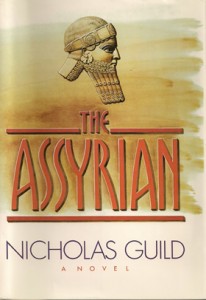
Q: With the evolution of book publishing—print versus ebook or audio, agent versus indie, publishing house versus indie—how does a new author determine their first path to take, such as to go for an agent, a publishing house, or remain an indie-author?
A: Granted, the publishing business has changed a lot with the advent of the ebook, but the key to selling a book—or anything else, for that matter—is publicity. People have to know that a book exists before they can buy it. And the sad fact of the matter is that advertising an ebook is a tough business. A print book has the advantage that it will go out to prospective reviewers and that, by virtue of the fact that some publisher has bought it, some pre-selection can be assumed to have taken place. Anybody can self-publish an ebook, with the result that there are vast quantities of very junky ebooks. So how does an ebook author bring his or her work to the attention of people who are prepared to pay money to read it? Newspapers and magazines print reviews and, at present, they aren’t much interested in ebooks. My advice is to try to sell your book to a hardcopy publisher first, and this is easier to do with an agent than without. Agents at least know who to go to, so they are worth their percentage.
Q: Although you have an agent and have been published through major houses, your first horror/paranormal novel “The Moonlight” was published solely as an ebook as if you were an indie-author. What were your thoughts on going this route rather than taking it to a publishing house?
A: The honest answer is that my agents didn’t like the book, so I let it sit on my hard disk for nearly twenty years and then I reread it, came to the conclusion that my agent was wrong, and decided that, what the hell, I’ll do it myself as an ebook. In a sense, it was an act of desperation. I thought it was a good novel and I wanted it out there. Certainly, in the current market, I would have preferred to publish it in hardcopy first.
Q: What do you consider key habits writers should establish?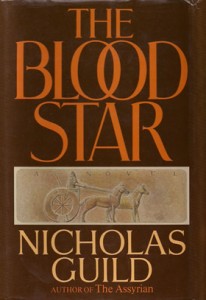
A: If you want to be a writer you should write every day, and write with care. Also, review your work regularly after enough time has passed that you’re no longer quite so in love with it and can look at it with cold eyes, as if someone else had written it. And read as much of the best work in your genre that you can find. Good models, along with the habits of regularity and self-criticism, are essential.
Q: While teaching, you had a lengthy hiatus from the publishing world. What obstacles or difficulties overall, if any, did you encounter upon your return to writing? Smooth transition back to writing or some form of personal search to find your ‘voice’ again?
A: Essentially, I found I was starting over, at least as far as my relationship to the publishing world was concerned. But during my “hiatus” I never stopped writing. I just couldn’t seem to get past the first several chapters of any project I started. I think as much as anything it was a failure of nerve, of confidence. Now I have several started novels, one of which, titled Blood, is already finished. And I’m charging ahead.
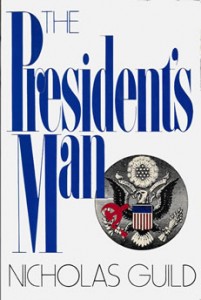 Q: Regardless of the genre, every author has research to perform for their project. Any helpful pointers? Any pitfalls to watch out for?
Q: Regardless of the genre, every author has research to perform for their project. Any helpful pointers? Any pitfalls to watch out for?
A: The only pitfall in research that I can think of is not to do it. You have to do your homework. This is particularly true in historical fiction, which is my primary area. I just finished a novel set in Greece in the 4th Century B.C. (tentatively titled The Spartan Dagger and being brought out by Tor Books—I just couldn’t resist the plug), and you have to know the details of life in that period. You can’t afford mistakes because if you make one, and the reader catches you at it, it shatters the illusion. So do a lot of reading.
Q: How connected do you become to a novel you are writing? Ever reach a point of addiction whereby you feel you must write at every opportunity or can you walk away and return to your project as you wish and still have the tempo and flow of the work?
A: Once I’ve started a book, I almost have to work on it every day. If I miss a day I tend to lose my nerve and it will take me a while to get back into it. This is just my own, no doubt neurotic, pattern. If I’m really into a book I start dreaming about it, and some of the dreams are really strange. When I was writing The Assyrian I dreamt that I ran into Sennacherib behind the counter of a dry cleaning store, where he told me, “you know, you weren’t quite right about. . .” Part of writing a novel is sustaining a fantasy, and that can do funny things to your head.
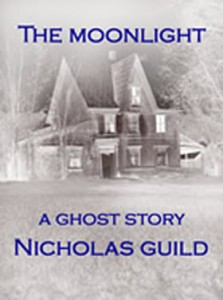
Q: Has any other profession ever come to mind that you might enjoy if you were not an author or had been a Creative Writing professor?
A: I don’t have any choice about being a writer. I have to write. It’s an obsession. But I was an English teacher for several years and I enjoyed that. Mark Twain once said about being a riverboat pilot, “I loved that profession, far more than any I have followed since.” I almost feel that way about teaching, but not quite.
Q: What do you feel are the worst or most common mistakes new or established authors make?
A: I think that both the worst and more common mistake that any writer makes is to fall in love with his own words. Scott Fitzgerald once said that every story has to go through three editing processes: one for grammar, one for style and one to cut out all the immortal stuff. When you stop being critical of your own work, you’re lost.
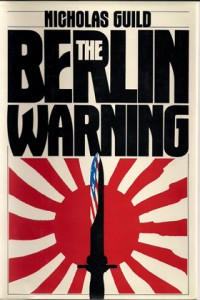 Q: How does the idea for a novel come about? What are your creative processes?
Q: How does the idea for a novel come about? What are your creative processes?
A: I have no idea. Sometimes an idea for a novel will just drop into my lap out of nowhere. Sometimes I’ll start with a gesture or an idea for a scene and the novel will grow up around that. Sometimes the story will have to marinate for years before I’m ready to write it. Believe me, the “creative process” is as much a mystery to me as to anyone else.
Q: New or aspiring authors often mistakenly place well established authors, such as yourself, on pedestals, and believe your work flows like honey and your lives are far different than the “everyday man.” What is an average day like for Nicholas Guild, a best-selling, international author? Any sort of routine or schedule you follow to balance life and writing? Or is your life truly champagne and caviar?
A: It sure as hell isn’t champagne and caviar. I work at writing as a job and I work at it seven days a week. A writer’s life is quiet and isolated. You have to be prepared to spend large stretches of time alone. Aside from that, I live like everybody else. It’s a mistake for a writer to imagine that he’s significantly different from other people. In the first place it isn’t true and in the second it isn’t good for your art to cut yourself off from normal life.
Q: Are there any special traits or talents which set authors apart from each other?
A: It goes without saying that a writer has to have a certain facility with language, which is probably not any difference in kind from having musical talent or a talent for fixing machines. Beyond that, in my experience most writers, at least writers of fiction, are neurotic and insecure. I have a theory that we all live mainly in fantasy until we’re about four or five, and then most people start living in the real world and the fantasy machine sort of shuts down. A writer keeps creating an imagined life for himself/herself until he/she is old and gray. Why? Probably because the writer-in-embryo doesn’t find the real world all that congenial, and the situation doesn’t improve with time. I used to tell my creative writing students, “if you find this isn’t for you, congratulations. It just means that you had a happy childhood and are reasonably well adjusted.” Fiction writing doesn’t proceed out of anything healthy.
Q: When someone approaches you and says, “I want to write a book. Where should I begin or what should I do first?” What would be your recommendation?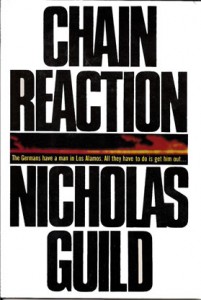
A: My recommendation would be, start writing. Just get stuff down on paper. It will either begin to take shape in your mind or it won’t. Writing comes first, thinking comes later. In this business there are no magic formulas.
Q: The Internet, Social Media and Networking. These have had profound impact on the publishing world. What are your thoughts on them or the future of publishing?
A: Obviously, the internet and its components are the wave of the future. In a few years hardcopy books will be a niche business. The problem is that the internet is not really set up to support something like the book business, at least not yet. We don’t have the equivalent of, say, The New York Times Book Review, where the reviews command real respect. There has to be some sort of selection process that keeps out the books that are obvious trash—although God knows enough hardcopy books are obvious trash. The internet book business needs to develop a marketing structure. I have no doubt this will happen, but it hasn’t happened yet.
Q: Who or what acts as the sounding board for your novels when you have finished a first draft and want feedback?
A: I show drafts to such friends as are willing to read them, and of course I show them to my agent, who is very good at finding what is wrong—too good for comfort sometimes.
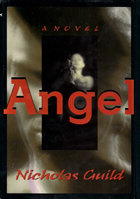 Q: You have a large European readership, as well as in America. Do you have any projects or novels on the horizon that you can share with us?
Q: You have a large European readership, as well as in America. Do you have any projects or novels on the horizon that you can share with us?
A: I have one I’m working on at the moment which is a sort of romance for grownups. I always hate to describe the plots of my projected stories because they always sound so goofy, but it is set in the 1870’s.
Q: Where can people go to learn more about you and your writings, as well as purchase your novels?
A: Try my website, which I am sorry to say I wrote myself: http://www.nicholasguild.com. I try to have an essay on some aspect of fiction on my home page and you can read reviews and what amounts to flap copy of the novels I have available as ebooks. The ebooks themselves are available at most of the important outlets like Amazon, Barnes & Noble and Apple.
Comments are welcomed and we would love to hear your thoughts about this interview!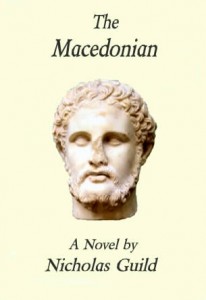
Want to know more about Nicholas Guild, his works, coming novels, or contact him? Try these links:
Website –http://NicholasGuild.com
Facebook – https://www.facebook.com/AuthorNicholasGuild
Twitter – https://twitter.com/NicholasGuild
E-Mail – Ni************@***il.com
Amazon – http://www.amazon.com/Nicholas-Guild/e/B000APF41U/ref=ntt_dp_epwbk_0
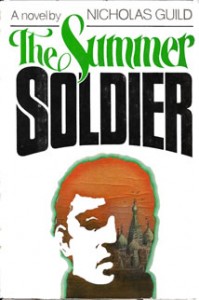
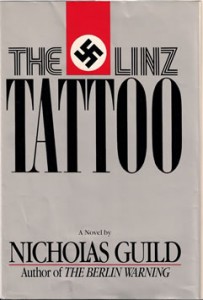
by Glenn | Apr 15, 2012 | interview, Writing
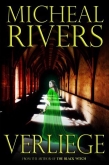
Paranormal Thriller
Paranormal Thriller Author of “Verliege,” “The Black Witch,” “Moonlight on the Nantahala,” and “Ghosts of the North Carolina Shores”
Today, I am truly honored to have Mr. Micheal Rivers, a great paranormal thriller author, as the very first author to be interviewed and presented on my site. Not only have I read several of his books and written unsolicited reviews, but I have also come to know Mr. Rivers as an excellent gentleman and man worthy of being a friend. These accolades of fine character and authorship are well deserved by him and not stated simply for this interview. He is a former (there really is no ‘former’) U.S. Marine, Vietnam veteran, and founder of the Smokey Mountain Ghost Trackers of Western North Carolina. Having stated this, let’s take a moment to learn more about him:
Q: First, thank you for allowing me to interview you. I realize you have a busy schedule and appreciate you taking this time with me. As an accomplished author now with four published novels and more works in progress, how did you start upon the literary path of being a writer? Was there anything in particular which steered you toward this endeavor?
MR: You are very welcome Glenn, it is always a pleasure to talk with you. I wrote for quite awhile actually. During my travels there were times when I sat in motel rooms or places I was visiting and found myself writing for whatever reason. In some of the regions I just threw what I wrote away because the sweat soaked the paper and made it almost unreadable. There was just something inside screaming to get out so I just put on paper. I never thought what I had to write was something someone would want to read until some of my work was submitted without my knowledge. It spiraled from there.
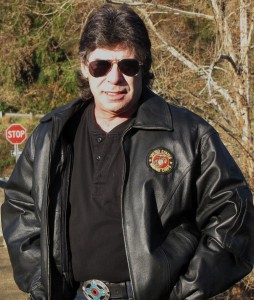
Author Micheal Rivers
Q: You are well known as a paranormal thriller author which is a challenging genre. Have you ever given thought to writing in different genres?
MR: Yes, I have many times. I may write something in the near future other than stories about ghosts. I have two already sitting in the To Do pile that was started in the late 90’s, just never got around to finishing them. Both of these books may give you a big surprise LOL. If you like stories about men in dangerous places you’ll like them both. One is based on a true character and some of his exploits.
Q: “Verliege” is an intriguing thriller…murder, suspense…wrongful prosecution of a man…I’ve only read the first chapter so far and have enjoyed it. If you will, please share some insight on the creation of “Verliege.” Readers always wonder how an author gets ideas. How did this novel come about? How did you develop it? Research it?
MR: I have an above average interest in history and archeology. Castles are a fascination in themselves with the architecture and the history behind them. I have seen a few castles and want to visit more when the opportunity arises. My first wedding was at the Nagagusuku castle ruins in Japan. This started the ball rolling wondering what could have happened there. Interesting fact, a famous pilot crash landed his plane there during WWII and was still on the grounds of the castle in 1972. The castle Verliege is a combination of four different castles in its present state. The rumors of all castles being haunted bring out ideas that you wish you could use them all but it isn’t possible. I had to put together a fictional penal institution and from there take the reader to the castle. It was the research from hell LOL. I had to build a castle, a town and the correctional facility from scratch. From this point the characters had to interact with the setting instead of the other way around.
Q: An experienced author understands the importance of self-discipline in their writings, daily time scheduling, and book marketing. What recommendations do you have for aspiring writers in reference to these matters or others concerning writing?
MR: Good question Glenn. The first thing I would say is do not follow my lead on this. I am as disciplined as a bear who discovered a honey bun. Book marketing takes a lot of time and covers too much of a day. I would rather sandpaper a lion’s bottom than do marketing. The way I write is to catch the wave so to speak. When the ideas begin to flow I write at that time. I write late at night mostly and sleep comes when I have to. I would advise new writers to make their outlines and follow them until they find out what works best for them. I start an outline but little of it is used. My story board is the most important to me. A picture you may find on my story board has nothing to do with the story. But it is what sparked the idea and develops into story line. Example: A dead bird nailed to a door in an old village equals the line and train of thought peasant’s roost. The visual from there is a long story. Write what you know, varying from this will stand out to a reader quickly. If you have never been to Africa you may find yourself in a bad spot writing about it.
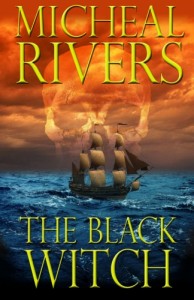
The Black Witch
Q: As an Indie-Author, where do you see the future publishing industry heading? New writers always have questions whether to first go traditional – agents, the big houses or the Indie route. What would you advise someone who talks of wanting to write a novel one day?
MR: Technology is not just the wave of the future. Books will always be here but in these times and the future, reading a book electronically will be for the man of the future. Something will come within the next few years that will make even the Kindle obsolete, but you will still be reading the books electronically. Agents and the big six are trying to find a way to assimilate now. As far as writing a novel is concerned I think everyone should be aware writing is not a part time job. It is a profession that limits you in a lot of ways with long hours. Socializing pretty much goes out the window except in small spurts. I would advise new writers to go indie in the beginning and test the waters to see if their style is accepted by the public. Unless you are an exceptional writer the large houses won’t even talk to you. Beware of agents!!! The good ones are hard to get and the bad ones will take your money and you’ll see no benefit from anything they have done. Mostly with this type agent they are waiting for you to make the money so they get paid for doing nothing.
Q: You are a ghost hunter with the Smokey Mountain Ghost Trackers of Western North Carolina. Most people have seen the popular televisions shows. How did you get interested in the paranormal? How does television compare to real ghost hunting? Has there been any particular incident to make the hair rise on your neck and arms?
MR: I grew up in a haunted house. Many have said this, but this house was definitely no joke. With my ancestry I was taught how to interact with the paranormal or spirits. We learned they were a fact of life and were looked on as being no different than visiting your neighbor. Always show respect to the spirits so the elders teach. I wound up collecting stories from other countries while I traveled and had experiences. I wanted to know what else was out there besides the ghosts at home. In my opinion Ghost TV will never compare to the real deal. There are things they miss while trying to shoot an episode as well as other things I will not go into. Incidents that raised hair, you bet and more than one. I have never been near or seen anything that actually scared me, not even combat. But I will say there have been several instances where ‘things’, for lack of a better word, stopped me in my tracks. Case in point I came face to face with something in the Belgian Congo that passed through me and kept traveling. The other men there couldn’t believe what we were seeing and to describe it would take a miracle. I have a million stories on the paranormal from all over. My favorite was the child from Bom Bom island in Africa.
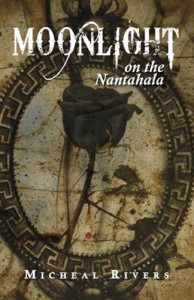
Moonlight on the Nantahala
Q: Your website shows a project in progress: “Appalachian Mountain Folkore.” Will this have a paranormal basis? Can you give us some information on the book?
MR: Appalachian Mountain Folklore will be released by my other publisher (Schiffer Publishing Ltd) later in the season. It covers folktales and lore from the mountains of North Carolina. There are a few tales in here that are rarely heard and all are written from the aspect of the way the Native Americans interacted with the Europeans of the times. Two are from tales passed through my family. A lot of paranormal elements in this one for sure.
Q: Where can readers contact you, find your books, more information about you, and keep informed of your future events?
MR; I would love to hear from anybody who wants to say hello or has a question for me. You can contact me at michealrivers.com http://bit.ly/kcThdo and my books may be found at Amazon.com http://amzn.to/uHpPD6 It was great privilege to be here today and thank you for your service. I do want everyone to know through the years a lot of Marines have given their life for others, they are not forgotten. They have passed from us and now they all are standing their post in a military manner safe guarding those they left behind. For those who are not aware Semper Fidelis is not just a quote; it is the essence, the life, and the soul of a United States Marine for eternity.
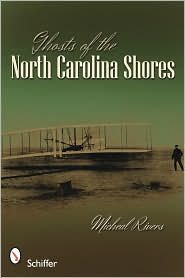
Again, thank you, Micheal, for sharing your time and thoughts with us. I know we’ve had to skip a lot of questions, but possibly another day we can have a “Micheal Rivers, Part Two” interview.
And before closing, I want to thank you as well for your service in Vietnam as a U.S. Marine.
Semper Fi,
Glenn
Excerpt for Verliege
Near the center of the cemetery the mausoleum beckoned them to draw closer. From their position they could not see the front of the mausoleum. Two sides could be clearly seen, appearing unusually clean. Emery did not approach the mausoleum immediately. He stood squinting in the morning sun, trying hard to find a reason why the stone structure had not aged over the years.
He had learned early in his career not to advance too quickly upon a scene that did not feel right. Raising his camera to his eye, he adjusted the long-distance lens to bring the mausoleum closer. Something was wrong. The stone was too perfect in every way. He could not find a single flaw.
Weis spoke softly. “We may find something of interest within the tomb.”
Emery spoke without taking his eye off of the mausoleum. “I think we should skirt around it and approach it from the front. It doesn’t feel right to me. Take a look through your camera and tell me what you see.”
Weis raised his camera and inspected the walls of the mausoleum carefully. “I don’t see anything unusual.”
Emery laughed lightly. “Look again. The stonework has not aged a day. There are no cracks or signs of erosion as there should be.”
Weis looked once more, realizing Emery had been correct in his observations. Carefully they walked in a large circle to enable them to see the front of the mausoleum. Standing a safe distance away, they saw that one of the doors was partially open, allowing them to see the darkness of the interior.
Stepping slowly forward toward the open door, each man prepared himself for a possible intruder. Emery approached the open door at an angle to help protect himself. Time slowed to a crawl. Reaching for the door to open it farther, Emery’s fingers had barely reached the handle when it slammed shut violently.
They both jumped back away from the door, and Weis fell over a broken headstone behind him. A loud moan echoed through the air around them.
Weis gained his feet, shaking his head. “I am not going in there. Whatever it is, I’m happy to leave it in there.”
Emery grinned. “Sorry, Weis, but I have to see what the moaning is about.”
He reached forward and jerked the door open with a vengeance. Shining his light inside, he found the mausoleum empty except for the neatly stacked burial coffins. Emery turned, questioning what he was seeing. “There is nobody there, Weis. I guess the moan was the rusty hinges and a little imagination.”
Weis disagreed. “The door was shut before we heard the moan. Do you think you can tell me who shut the door? I think not. It is too heavy to close on its own. I’m leaving.”
Emery watched as Weis started to walk away. The incident had shaken him badly.
Weis was glad he had taken pictures of the open door before it had slammed shut. It was hard for him to shake the feeling that there was someone close behind them as they made their way back across the bridge. Turning back toward the cemetery when he was at the foot of the bridge, he glimpsed a large black shadow disappearing into the trees.
by Glenn | Feb 15, 2012 | interview, Writing
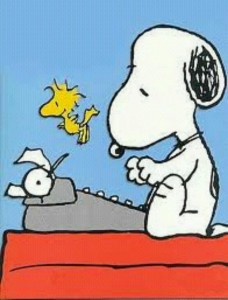
The Creative Mind
http://bookmarketingbuzzblog.blogspot.com/2012/02/interviews-with-publisher-literary.html
Interview With Novelist Glenn Starkey
What are the challenges of being a novelist today?
The greatest challenge is writing a novel worth reading. Accomplish this and the rest is procedural in terms of marketing your book. You can obtain help from mentors, friends and even hire people to promote your project, but if you do not have a book worth reading, you have no foundation to build upon.
What is your newest book? Why did you write it?
I am presently completing my first “sci-fi” based book “Amazon Moon.” As an action-adventure and historical fiction novelist, I wanted to challenge myself with a new creative path of writing — a hard hitting action-adventure that ends with a science-fiction twist. While some authors choose to remain within a single genre, I want to be known as an author that can cover a spectrum of writings and always turn out a quality story regardless of the genre.
What do you love most about being a published author?
I love writing a novel and receiving comments from men and women readers around the world telling me how much they enjoyed the story. When they begin telling me how much they loved the characters, the action, the storyline, and so forth, it truly makes my day! I then realize how I achieved my goals of being an author, capturing a reader’s soul, and making them want to read “one more page” before stopping for the day. I had one reader state, “I hate you!” Just that alone stunned me then I smiled as I read, “…you made me miss so much sleep because I loved your book and couldn’t stop until the end.”
Any advice for a struggling writer?
Honesty with yourself about your writing skills and perseverance in your efforts is important. First, study the craft by reading a wide variety of books in different genres. Second, write and complete your book before worrying about advertising, marketing, book sales and promotions. Third, get your book read by at least ten non-related people so you have a feel for your writing ability—and don’t argue with their review of your work. Analyze their comments and find the norm of problems they presented to you…then fix the problems whether it is your poor writing skills or a weak storyline. Fourth, be prepared for a bad review down the road. It doesn’t mean you are a bad writer. Remember, not everyone likes the same things in life.
Where do you see the book industry heading?
The first computers filled a room with their monstrous sizes and used IBM punch cards and reels of magnetic tape for their data. Fast-forward from that point and today your cellphone is a mini-computer with far more abilities. Your cellphone is a mini-computer. You can read a book or write one using your cellphone if you wish. Now look at the book industry. It has moved from ancient printing presses with all their labors to electronic distribution of books via “eBooks.” The evolutionary society we live in, courtesy of technological advancements, combined computers and the publishing industry so tightly that it leaves future developments a wide open race. We have become a demanding society which expects technology to continually change—and do so swiftly. There should always be readers and a demand for well written books, but the medium we will be using is anyone’s guess. I am of the generation that still loves to “hold” a book in hand, but my grandson will be of the generation that relates more to an eBook than a hard or soft cover novel. Neither is best or wrong; it is simply how we have evolved and what we have learned during growth.
For anyone in search of a definitive answer about the future of the industry, they will be disappointed to learn there is no set answer. There will be more of a lean toward electronics such as eBooks, but the love of physically holding a book will remain for several more generations. I do firmly believe though that “big house” publishers will gradually lose their domination over the publishing industry. I believe “indie-authors” and “indie-publishing” are forces to be reckoned with.
For more information about Glenn Starkey and Solomon’s Men, Year of the Ram, and The Cobra and Scarab: A Novel of Ancient Egypt, please consult: https://glennstarkey.net
by Glenn | Nov 5, 2011 | interview
Steel Diamonds Publishing is an eBook publisher
This interview may also be found on their site http://ebookpubs.blogspot.com/
Q: What was the inspiration for your novel “The Cobra and Scarab”?
A: Watching a television documentary about the beautiful Egyptian queen Hatshepsut and her questionable rise to power as “King” and Pharaoh, I became intrigued by the gaps within the story. She supposedly stole the kingship from her stepson, the rightful heir Thutmose III, and announced she would relinquish control once he reached an adequate age. But she didn’t and hatred grew between them. She suddenly died; he became Pharaoh and then had her name and any references to her smashed from everything in Egypt. Thutmose III went on to become one of Egypt’s strongest military rulers—and the documentary ended. There was no further information about the cause of Hatshepsut’s death except hints of treachery and murder. Now hooked, I continued to research that period of history and kept finding the same basic storyline. It was then I realized my novel, “The Cobra and Scarab,” lay within those historical gaps.
Q: In looking over your work I find it difficult to place them in a certain genre. What category would you say best suits your work?
A: My novels are a blend of action adventure, historical fiction and suspense. I will probably always have some aspect of history as a foundation for my books, but believe readers of almost any genre will find interest in my writings. I say this with confidence because I’ve had several readers tell me that there is something for everyone in my books.
Q: Your book “Solomon’s Men” has been published in print, but not as an eBook. Is this a marketing strategy, a dislike for eBooks, or the publisher’s decision?
A: As I answer this question, I am awaiting the online arrival of “Solomon’s Men” as an eBook for Amazon Kindle, Barnes & Noble Nook, Sony Reader, and Apple iPad. When “Solomon’s Men” was originally published, there were no eBooks. My writing career came to a screeching halt at that time due to cancer, which is now in remission, and the events of “9-11.” The demands of my security manager career with a global oil corporation magnified ten-fold and never slackened until I retired. Having been asked for years by faithful readers when another novel would be coming, upon retirement I chose to renew my writings. I found the publishing world had drastically changed and discovered eBooks were a new avenue. From the beginning then I wanted “Solomon’s Men” released as an eBook. It just happened to fall as the latest book to be released due to the volume of work involved with publication of multiple novels. “Year of the Ram” and “The Cobra and Scarab: A Novel of Ancient Egypt” were recently released in print form. “The Cobra and Scarab” is also out as an eBook.
Q: The Amazon.com shows only 1 of your books left in stock. Are we to assume they have been selling well?
A: I recently saw that on Amazon.com and was quite pleased. With my return to writing there has been a resurgence of interest in my novels so I hope this is an indication of the future for all my writings.
Q: While you have a limited number of reviews, you have received nothing but the highest marks. As a writer, how does this make you feel?
A: “Solomon’s Men” has truly been received well. It has all the reviews at this time because the other novels have just come out. I know readers have begun ordering them so hopefully more reviews will be forthcoming. As for receiving the highest marks, it is an excellent feeling! It gives positive validation to my overall creative efforts as an author. I want readers to undergo a roller-coaster ride of emotions with my novels, and the great reviews to date tell me I have been successful.
Q: How much research have you done for your books?
A: I generally spend three to four months performing intense research for a book such as “Year of the Ram” where I included actual ancient war devices invented by the Chinese. During those months I am also mentally perfecting the overall storyline I want. Once I actually start writing the novel, the beginning to end process is over one year. My office becomes a disaster zone due to books, magazines, notes, photos and drawings scattered throughout the room. My wife looks in, shakes her head, and walks away.
Q: Your other new book “Year of the Ram” sounds very intriguing. It also sounds very violent. Would you say it is suitable for all age groups?
A: My novels are written with a historical foundation and history is often far more cruel than I write in my books. “Year of the Ram” is set against the backdrop of a savage war after the Mongols captured China as its own. It is an epic novel of a man torn between his allegiance to his father—the Great Khan, the struggle to save their nation against the onslaught of a massive greed-ridden army, and the discovery of a son he never knew had been born.
I do not write children’s books or for young adults, but I find it odd that a historical fiction novel is thought violent while novels and movies of paranormal, horror, gory zombies, blood-sucking vampires, and throat-ripping werewolves are so widely acceptable for today’s teenage youth.
Q: Do you feel the ability of authors to publish independently without the use of an editor has in any way degraded the overall quality of books in the marketplace?
A: There is a definite need for quality filtering of some form, whether it is an editor or an author’s well-disciplined pre-publication review process. The degradation in quality of books due to a flood of indie published works, especially free eBook publishing, has become a major heated point of discussion on many book seller forums, such as Amazon. This is creating an unjustified backlash against all indie authors. On almost every forum you read postings which state indie writers should be filtered/separated from “the good books” (referring to major publishing houses) because of their poor writing skills. Based on the volume of irate comments, you realize all indie authors, good or bad, are being lumped into one pile labeled: “Stay Away.”
Q: What has been your most successful marketing tool/strategy for your novels?
A: Social media networking is a tremendous tool. But I also find simple word of mouth recommendations from one reader to another, giving those reviews about your novels that you will never know of or hear, is the strongest marketing tool.
Q: Where do you see yourself as a writer ten years from now?
A: I see myself writing, still trying to feverishly get the hundreds of ideas out of my head and into books. I want to develop a strong readership and following that will be anxiously awaiting my next work. I definitely see myself demanding that the next novel be even better than the last.
My website, book excerpts, and blog is https://glennstarkey.net
I can be contacted through the contact page on my website.
Facebook: www.Facebook.com/GlennStarkeyAuthor
Twitter: www.Twitter.com/GStarkeyBooks
GoodReads: www.Goodreads.com/GlennStarkey

